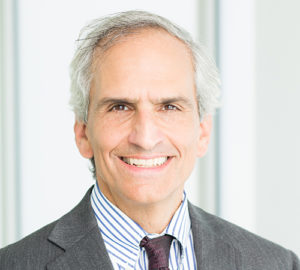Babson Thought Leaders Look to 2023

The start of a new year is often a hopeful time, brimming with possibility and renewed determination. So what can the Babson community—packed with entrepreneurs, entrepreneurial leaders, and disruptors working to better local and global business—expect in 2023 as the new year begins?
Predictions have become a tricky business ever since March 2020, when the fast-moving COVID-19 pandemic upended plans and lives everywhere. Babson thought leaders, however, have stepped up to offer their prognosis and some guidance as we kick off a fresh year and cast our gaze to the future.
Inflation Pressure Builds
Amy Blitz, assistant professor of practice in the Economics Division:
“Supply chain issues, especially from China, together with the sanctions on Russia, will continue to create inflationary pressures, which will likely hit the most vulnerable hardest. For one, winter heating in colder climates is expected to be a particular challenge for many in 2023.

Any Blitz, assistant professor of practice in Babson’s Economics Division, discusses potential inflation issues in 2023.
“Central Banks will likely continue treating these inflationary pressures as a demand rather than a supply issue, by continuing to raise interest rates. This may bring prices down in some sectors but could set off ‘stagflation,’ reducing growth, while increasing unemployment. Meanwhile, prices are likely to remain high in key sectors such as food and energy.
“These pressures, together with the social and economic inequality we’ve been seeing rise for so long around the globe, will likely intensify political instability. I expect we’ll see growing resistance toward long-standing authoritarian regimes, as we’ve seen recently in Iran. Hard-line policies in Russia and China also appear to be faltering.
“Against this backdrop, I think authoritarian regimes will continue to challenge democracy. But, I think resistance movements may be a growing force to reckon with in pressing for expanded democratic freedoms, economic rights, and political inclusion.”
‘Markets Need to Adjust’
Glenn Migliozzi, assistant professor of practice in the Finance Division:
“Financial markets returns are so very difficult to predict for the future. Recent events, including COVID-19, supply chain issues, and the Russian invasion of Ukraine, can rattle equities and commodities markets in significant ways. The surge in housing, energy, and food prices impacted both Wall Street and Main Street.

Workers continue to wield power, says Glenn Migliozzi, assistant professor of practice in Babson’s Finance Division.
“The mandates of the federal reserve system of the United States are to maintain stable prices and to enhance full employment for the country. This is made much more complicated when we have some of the events listed above occur. One could argue, too much money got injected into the economy to address the impact of COVID-19 on the economy and on consumers.
“As such, the Fed began an aggressive restrictive monetary policy to slow down consumer purchases and corporate speculations. While increases in federal funds rates this year may have been late to the game, the recent significant rate hikes may have finally brought the economy back into balance.
“Energy and housing prices are softening while some corporations are reducing staffing. This is being done when unemployment rates are near historical lows. Many in politics and media believe the sky will fall if interest rates increase any further. I would disagree. Markets needed to adjust and remove excesses in the marketplace.”
A Tight Labor Market Empowers Workers
Peter Cohan, associate professor of practice in the Management Division:
“2022 was the worst year for investors since 2008, with the S&P 500 losing 20% of its value and the tech-heavy NASDAQ down by a third. What caused stocks to drop in 2022? In a nutshell, the Federal Reserve decided in March to take action against inflation that reached a 40-year high—peaking at 9.1% in June. During the year, the Fed raised its Fed Funds rate to a range between 4.25% and 4.5%—a 15-year high.

Peter Cohan, associate professor of practice in the Management Division, says 2023 could be “even worse,” for investors than 2022.
“I predict that in 2023, things will get even worse for investors. The reason is that since early 2022, a wage-price spiral—in which a tight labor market empowers workers to demand bigger raises in response to higher consumer prices—has taken root. Wages have increased at over 5% for much of 2022.
“To cut inflation down to 2%, the Fed will have to reduce workers’ bargaining power through larger and more sustained interest rate increases that send the unemployment rate way above its current 3.7% level. Indeed, on December 14, the Fed raised its 2023 interest rate target by half a percentage point to 5.1% and forecast a 4.6% unemployment rate. Investors were not expecting that, and now the hope that the Fed would stop raising rates has been delayed by at least a year. That could mean another down year for stocks in 2023 and continued challenges for private companies seeking to raise capital and reward employees and investors through initial public offerings.”
Posted in Insights




